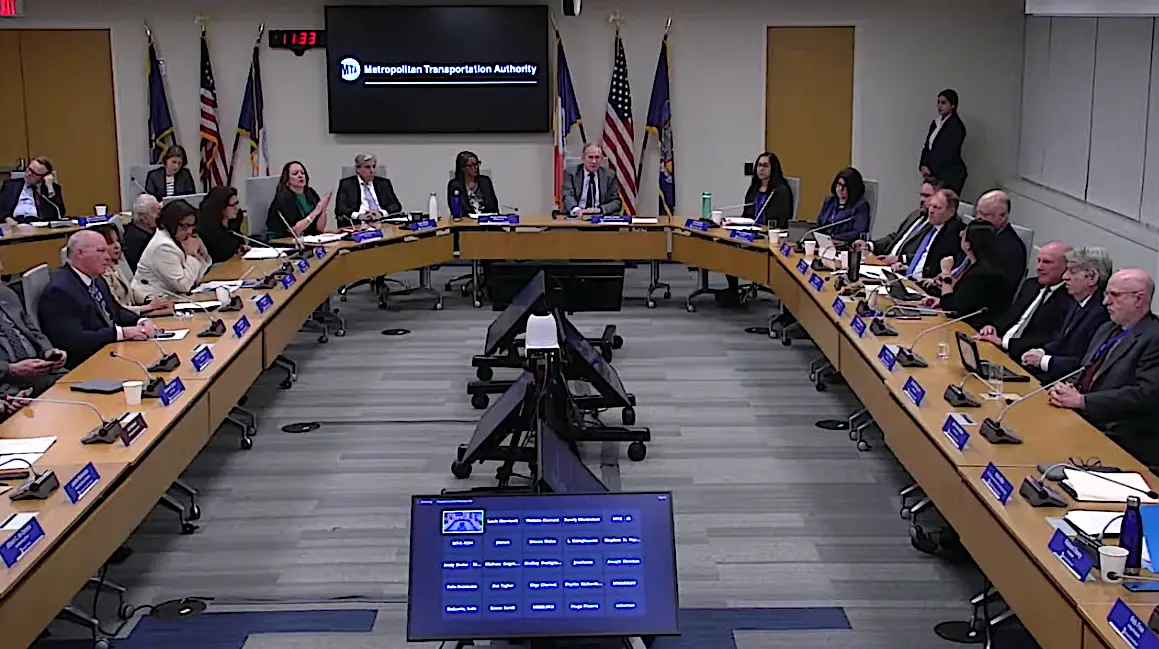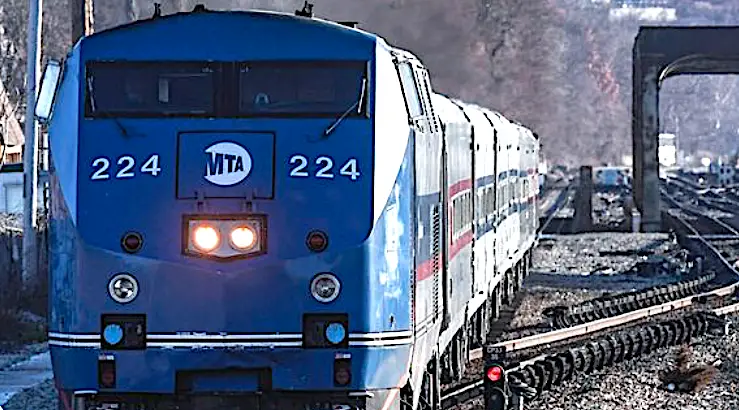MTA board approves congestion pricing tolls
The Board of Directors of the Metropolitan Transportation Authority (MTA) today voted to approve the schedule of tolls to be imposed on drivers entering Manhattan below 60th Street. The tolls are known as congestion pricing. Only one of the board’s 23 members voted against the congestion pricing plan. The MTA plans to begin collecting the tolls in June, but that may be delayed if threatened lawsuits are filed to challenge the plan and ask the federal governmen to force the MTA to undertake a complete environmental review.

The MTA anticipated that its congestion pricing would produce $1 billion a year to fund its capital programs including the purchase of new subway cars, and new rail cars for Metro-North and the Long Island Rail Road. The MTA says without congestion pricing it runs the risk of falling behind on repair work necessary to update aging infrastructure and assets critical to the reliability of the system.
The MTA estimates that its capital programs support 57,400 jobs and impact the economy at every level.
The toll schedule calls for motorists who do not have E-ZPass and therefore will be billed by mail to be charged 50% more than the E-ZPass rates.

Passenger vehicles and passenger-type vehicles with commercial license plates would be charged a $15 peak period ($3.75 overnight period) E-ZPass toll for entering the Central Business District (CBD) in Manhattan, no more than once per day. Trucks would be charged a $24 or $36 peak period ($6 or $9 overnight period) E-ZPass toll for entering the CBD, depending on their size. School buses contracted with the NYC Department of Education, commuter vans licensed with the NYC Taxi and Limousine Commission, and buses providing scheduled commuter services open to the public would be exempted from the CBD toll. Other buses would be charged a $24 or $36 peak period ($6 or $9 overnight period) E-ZPass toll for entering the CBD, depending on their type. Motorcycles would be charged a $7.50 peak period ($1.75 overnight period) E-ZPass toll for entering the CBD, no more than once per day.
Peak period toll rates would apply during the most congested times of the day – from 5 a.m. to 9 p.m. on weekdays, and from 9 a.m. to 9 p.m. on weekends. Toll rates would be 75% lower in the overnight period. A tunnel crossing credit against the peak period CBD toll rate would be provided to vehicles with E-ZPass entering through the four tolled entries that lead directly into the CBD: the Queens-Midtown, Hugh L. Carey, Holland, and Lincoln Tunnels.
The E-ZPass credit would be: for passenger vehicles $5 (if entering the CBD via the Lincoln or Holland Tunnel) or $2.50 (if entering or exiting the CBD via the Queens-Midtown or Hugh L. Carey Tunnel); for motorcycles $2.50 (if entering the CBD via the Lincoln or Holland Tunnel) or $1.25 (if entering or exiting the CBD via the Queens-Midtown or Hugh L. Carey Tunnel); for buses and small trucks $12 (if entering the CBD via the Lincoln or Holland Tunnel) or $6 (if entering or exiting the CBD via the Queens-Midtown or Hugh L. Carey Tunnel); and for large trucks and licensed sightseeing buses $20 (if entering the CBD via the Lincoln or Holland Tunnel) or $10 (if entering or exiting the CBD via the Queens-Midtown or Hugh L. Carey Tunnel). No tunnel crossing credits would be in effect in the overnight period, when CBD toll rates are already 75% lower than in the peak period.
Specialized government vehicles would be exempted from the CBD toll. Qualifying authorized emergency vehicles and qualifying vehicles transporting persons with disabilities would be exempt from the CBD toll, as required by law. Low-income vehicle owners who qualify and register for a Low-Income Discount Plan would receive a peak period E-ZPass toll rate that is 50% less than the passenger vehicle peak period E-ZPass toll rate, on their eligible vehicle’s 11th trip and trips thereafter in a calendar month.